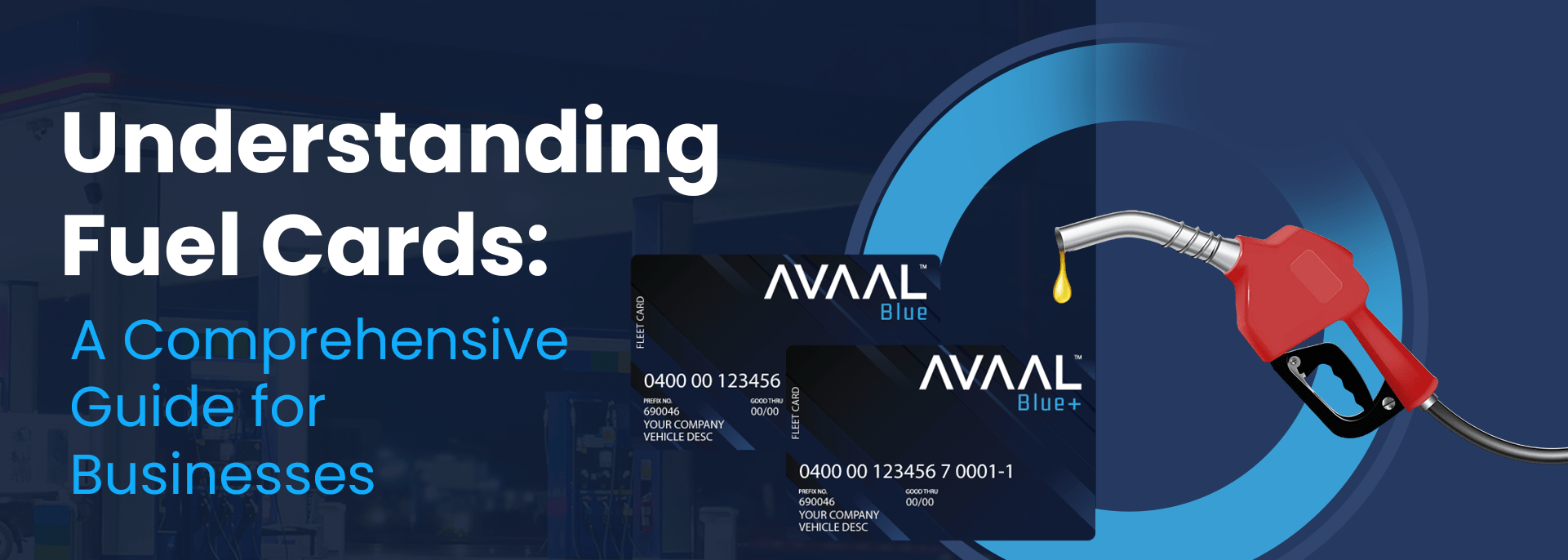Understanding Fuel Cards: A Comprehensive Guide for Businesses
Managing expenses and maximizing efficiency are crucial for success in today’s fast-paced business environment. Fuel costs can be a significant portion of operational expenses for companies that rely on vehicles for transportation, logistics, or service delivery.
One effective tool that has emerged to help businesses manage these costs is the fuel card.
What Are Fuel Cards?
Fuel cards are specialized payment cards designed to purchase fuel and related expenses. Banks or fuel companies often issue them, and they can be used at a vast network of gas stations. Fuel cards are typically linked to a business’s account and provide a way to track and manage fuel expenditures efficiently.
Unlike regular credit or debit cards, fuel cards come with features tailored specifically for businesses. This includes the ability to limit where and how much fuel can be purchased, monitor fuel consumption, and access detailed reports on fuel expenses. Fuel cards are particularly beneficial for companies with a fleet of vehicles, as they simplify the process of managing fuel costs and ensure better control over spending.
How Do Fuel Cards Work?
Using a fuel card is relatively straightforward. Here’s how it typically works:
- Application and Approval: Businesses must apply for a fuel card through a fuel card provider. This process often involves a credit check and the submission of financial documents to ensure the business can manage the associated costs.
- Card Issuance: Once approved, the business receives fuel cards for its drivers or vehicles. Each card is linked to the company’s account.
- Fuel Purchases: Drivers can use the fuel card at participating fuel stations. When making a purchase, the driver swipes the card, enters their PIN, and the transaction is processed.
- Transaction Limits and Controls: Businesses can set limits on the cards, such as the amount that can be spent per transaction, fuel types that can be purchased, and even which fuel stations can be used. This helps prevent misuse and over-spending.
- Reporting and Analytics: Most fuel card providers offer online portals where businesses can access transaction histories, generate reports, and analyze fuel consumption patterns. This data can be invaluable for managing fuel budgets and identifying inefficiencies.
Benefits of Using Fuel Cards
- Cost Control and Budgeting – Fuel cards help businesses keep fuel expenditures in check. With customizable spending limits and the ability to restrict purchases, companies can significantly reduce the risk of unauthorized spending. Furthermore, detailed reporting allows for better forecasting and budgeting of fuel expenses.
- Streamlined Administration – Managing fuel purchases can be a time-consuming task, especially for companies with large fleets. Fuel cards simplify this process by consolidating fuel transactions into a single monthly invoice. This reduces the administrative burden associated with tracking receipts and reconciling expenses.
- Enhanced Security – Fuel cards offer a higher level of security compared to cash or traditional credit cards. They can be programmed with specific parameters to prevent fraud, such as limiting the card’s use to certain stations or vehicle types. In the event of a lost or stolen card, businesses can quickly freeze or deactivate the card to prevent unauthorized use.
- Improved Efficiency and Productivity – With fuel cards, drivers can refuel their vehicles quickly and easily, reducing downtime associated with fuel purchases. This efficiency is especially critical for businesses that rely on timely deliveries or service calls. Additionally, the data collected through fuel cards can help identify patterns in fuel usage, leading to optimized routes and improved fuel efficiency.
- Access to Discounts and Loyalty Programs – Many fuel card providers offer discounts or loyalty rewards when using their cards at partner fuel stations. These savings can add up over time, providing additional cost benefits for businesses that regularly purchase fuel.
Choosing the Right Fuel Card for Your Business
When considering a fuel card for your business, several factors should be taken into account:
- Network of Fuel Stations – Ensure that the fuel card provider has a wide network of participating gas stations that are convenient for your drivers. Check if there are any fuel stations in your frequently traveled routes to minimize travel time.
- Pricing Structure – Examine the fees associated with the fuel card. Some providers charge monthly fees, transaction fees, or other costs. Compare these costs against the potential savings to determine the overall value of the card.
- Features and Flexibility – Different fuel cards come with varying features. Look for cards that offer customizable controls, detailed reporting capabilities, and integration with your existing accounting software. The more features that align with your business needs, the better.
- Customer Support – Reliable customer support is essential, especially if your business encounters issues with fuel purchases or card management. Research the provider’s reputation for customer service and ensure they offer accessible support channels.
- Trial Periods – Some fuel card providers offer trial periods or short-term contracts. Taking advantage of these offers can allow you to test the service and evaluate its effectiveness before committing long-term.
Conclusion
Fuel cards have become an invaluable tool for businesses looking to manage fuel expenses effectively. By providing cost control, streamlined administration, enhanced security, improved efficiency, and potential discounts, fuel cards offer a comprehensive solution for companies with transportation needs.
As the landscape of fuel management continues to evolve, fuel cards will remain a vital asset for businesses that prioritize effective expense management and operational excellence. If you haven’t considered a fuel card for your business yet, now might be the perfect time to explore the options available and take control of your fuel expenses.


